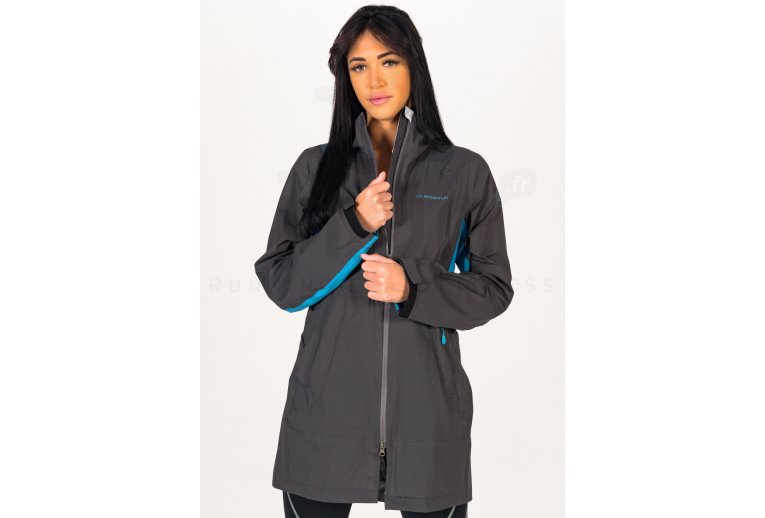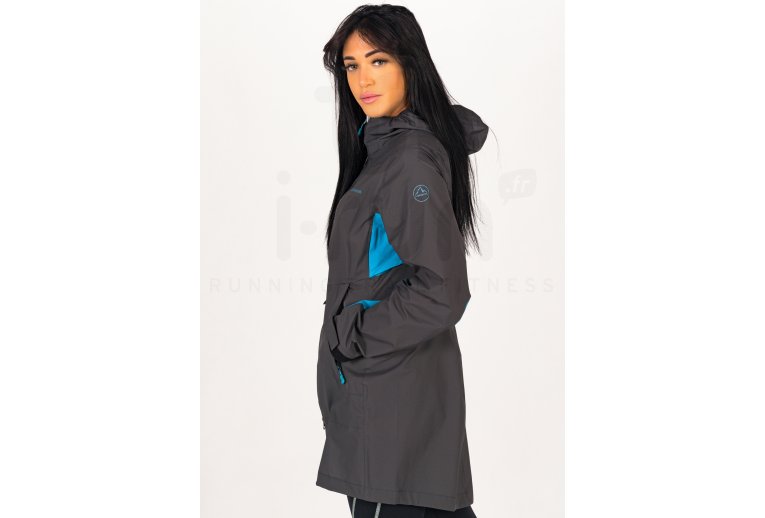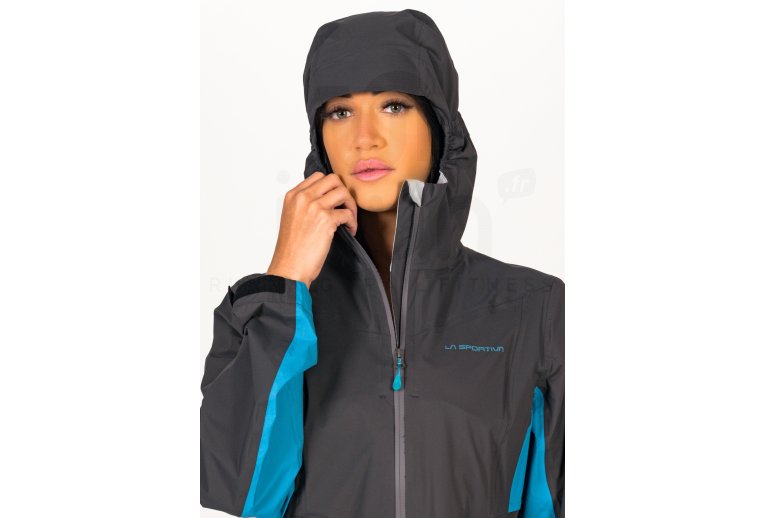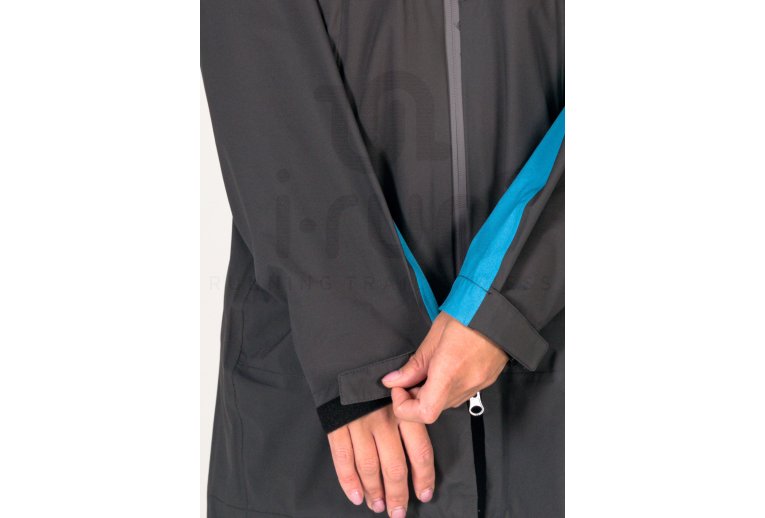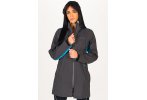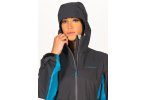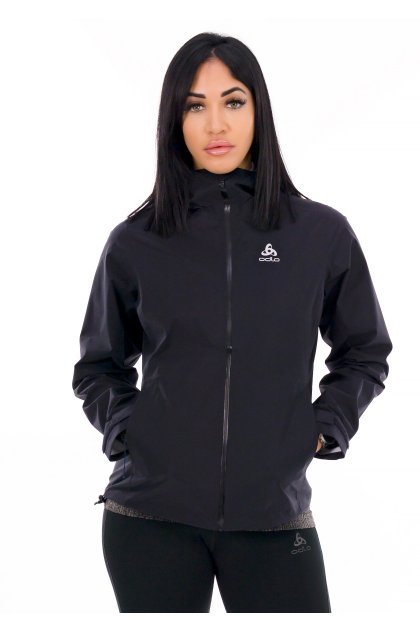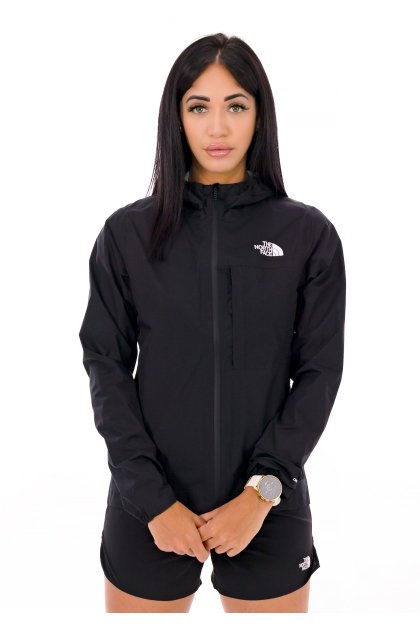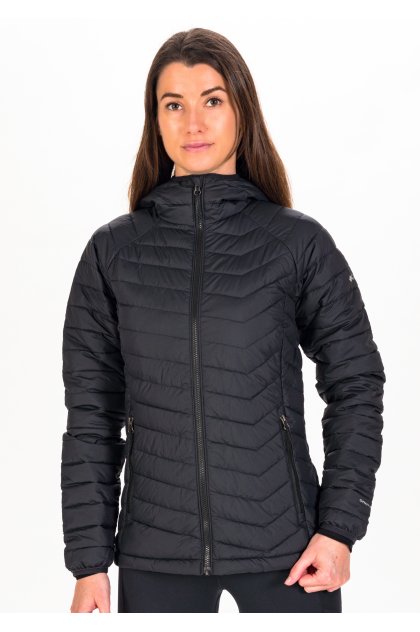The i-Run team says
Ideal for facing unexpected weather conditions, the La Sportiva Xplore parka for women offers you complete protection on your hiking trails.
Stamped with L5 Hard Shell, it features a 2.5-layer membrane that promotes breathability and provides optimal thermal insulation as well as protection against rain and wind. Its strategically placed laser cuts enhance ventilation to avoid overheating during your efforts.
Flexible, its material allows ease of movement while its flexible cuffs promise reliable support. The hood is equipped with a visor and can be adjusted to completely shield you from the rain.
The jacket is equipped with two side zipped pockets to store your small items. Packable, it folds into a specially designed pocket and can be easily stored in your backpack.
Our model M?lissa is 1m73 tall and wears a size S.
Key features of the La Sportiva Xplore parka
- L5 - Hard Shell: protection against the elements
- 2.5 layers: breathability
- Parka cut: protects the upper legs
- Hood with visor: protection
- Laser cuts under the armpits: ventilation
- Full zipper: adjustable ventilation
- Flexible material: freedom of movement
- Raglan sleeves: ease
- Flexible cuffs: adjustment and support
- Drawstring waist: prevents infiltration
- Two side zipped pockets: secure storage
- Interior storage pocket
- Packable: folds into its own pocket
- Colors: black and blue
Technologies
-
L5 : Hard Shell
Last layer of protection against rain, wind, and snow. A true barrier against the elements that simultaneously promotes breathability thanks to the materials and membranes used.
-
Recycled Fabric
La Sportiva introduces fibers and padding made from the reuse of recycled and certified RePET® polyester, derived from the recycling of end-of-life plastic bottles. Garments bearing the ?FABRIC RECYCLED? label ensure that:
- each petrochemical derivative has been replaced by fibers obtained from recycled polyester
- the garment helps reduce the impact on the planet
- durability and quality over time
- production of lower quantities of CO2 (approximately 54% lower than the production of traditional fibers) in the process of producing recycled polyester fibers
